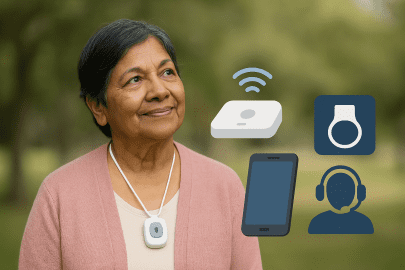Alzheimer’s disease doesn’t appear overnight. In many cases, the earliest signs can be subtle and easy to overlook. Recognizing these symptoms early can make a big difference, especially when considering options like home care, where personalized support helps individuals maintain comfort and independence.
Here are nine early symptoms of Alzheimer’s disease that families and caregivers should watch for:
1. Memory Loss That Disrupts Daily Life
While occasional forgetfulness is normal, frequently forgetting recently learned information may be a warning sign. In a home care setting, caregivers often notice these changes during routine conversations or activities.
2. Difficulty Planning or Solving Problems
Trouble following a familiar recipe or managing monthly bills can signal cognitive decline. Home care providers can assist with day-to-day tasks while helping clients maintain a sense of control.
3. Challenges with Familiar Tasks
Struggling to complete simple tasks, like using a microwave or making a phone call, may indicate something more serious. In-home support ensures that help is there when needed, without taking away independence.
4. Confusion with Time or Place
Losing track of dates or forgetting where they are—even in familiar surroundings—is common in early Alzheimer’s. Home care professionals can provide grounding routines that create stability.
5. Trouble Understanding Visual Images
Changes in vision, such as trouble reading or judging distance, can also occur. In home care environments, caregivers help adapt spaces for safety and comfort.
6. Problems with Words
A person may struggle to follow or join conversations, often stopping mid-sentence or repeating themselves. Home care allows for patient, one-on-one communication without pressure.
7. Misplacing Items
Placing things in unusual places and being unable to retrace steps is another red flag. Compassionate home care professionals can help reduce frustration while encouraging gentle routines.
8. Poor Judgment
Giving away money or neglecting personal hygiene can indicate impaired decision-making. Home care staff can support good habits while respecting personal dignity.
9. Withdrawal from Social Activities
People with early Alzheimer’s might avoid hobbies, work, or social events. Home care offers companionship and helps reintroduce joyful engagement at a comfortable pace.
Recognizing these early symptoms is key to seeking the right care. With compassionate and consistent support, home care can be an empowering choice for those navigating the early stages of Alzheimer’s disease.
At Brightside Healthcare, we understand how important it is to catch these signs early and provide the right level of care. Our home care services are tailored to support individuals with memory loss in the comfort of their own home—offering daily assistance, cognitive engagement, and the companionship that makes a meaningful difference. Whether you’re just starting to notice changes or need more ongoing support, Brightside Healthcare is here to help you every step of the way.



